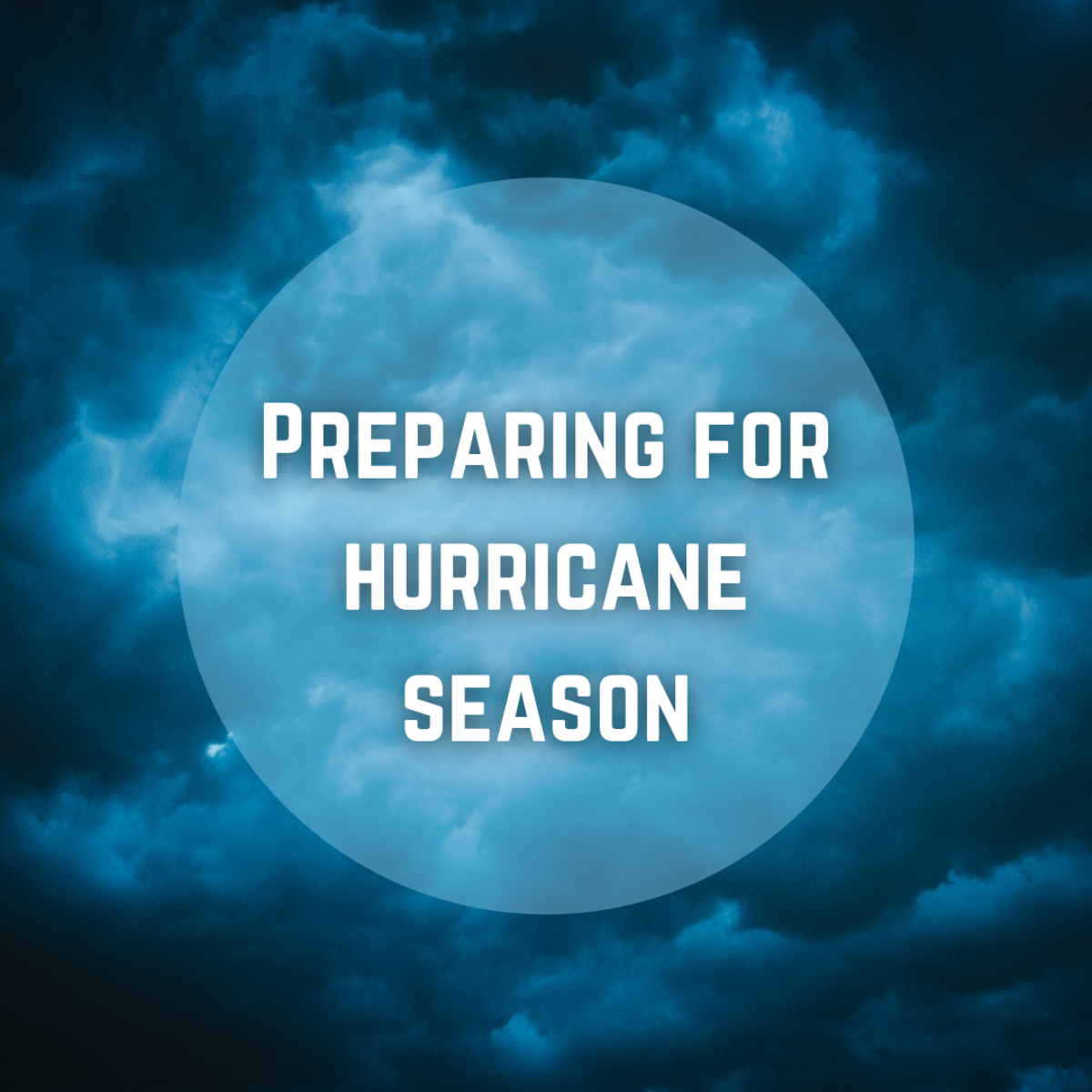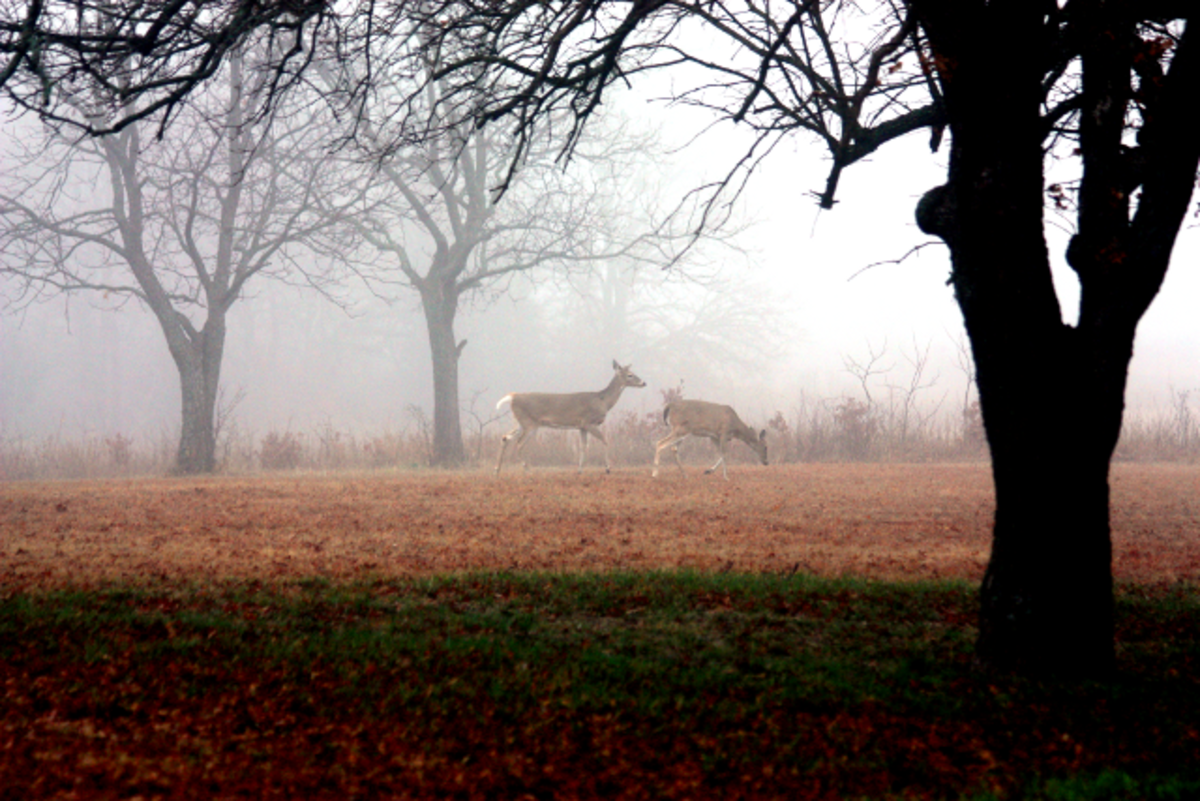Hurricane Story: Running From Rita
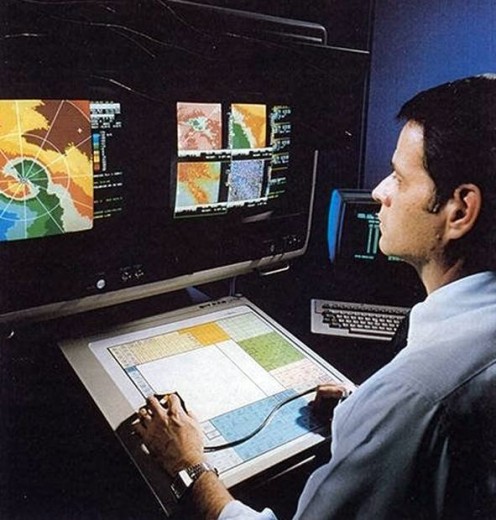
Hurricane Season of Terror: Diary of a Scared Black Woman
A hurricane was coming, and it was a big one. That day, it didn’t really matter what anyone thought. What mattered was what Houstonians were hearing. "Get out of town” is essentially what was being conveyed, over and over again, from all our local TV news channels. Were we hearing them correctly? Were they actually saying it was time for us all to go? Or, could it have been “selective perception," on our part? Were we simply hearing the parts of the broadcasts we chose to hear? It didn't matter. Because, in the final analysis what was registering with us was the need for speed in evacuating the city of Houston, Texas, as well as some of its nearby surrounding suburbs. The year was 2005, and we’d recently seen all the devastation and damage that wrecked homes and lives. A storm called Hurricane Katrina was still on all our minds, and we didn’t intend to take any chances with our lives.
“A category-five hurricane is coming your way,” we kept hearing news reporters say again and again as we flipped through the television channels. "Should I stay, or should I go?" became the question on the mind of every person in the general vicinity of Houston. Millions of people had to find their own answer to the question, and since we all faced different challenges in terms of our personal and business commitments, no one could really help anyone else make this important decision.
It was September, and I had recently moved back to Houston from the L.A. area. I was living at my sister’s home temporarily, with her and her family. As the news continued to break into regularly scheduled programming, neither my sister nor I could seem to tear ourselves away from the big TV in the family room.
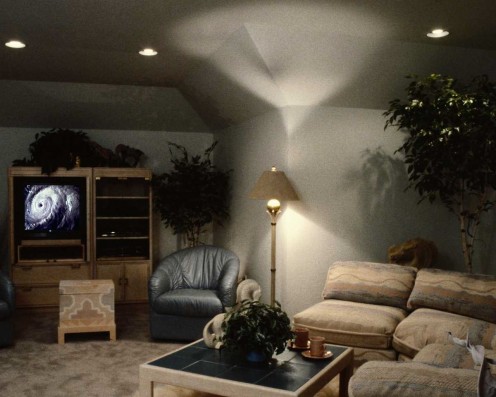
A Hurricane Was Coming . . .
Fear Itself
“You must evacuate to save your life,” they said. “Protect your property as best you can and then leave. Use your common sense. Just several short weeks ago,” the reporters said, “massive and horrible damage was done, to New Orleans and the Mississippi Gulf Coast, by a much weaker hurricane. Use common sense,” they kept saying, “people of Houston and surrounding areas. Those of you in low-lying areas, flood-prone areas; those of you living in inadequate housing that might not withstand hurricane-force winds, and those of you who are in the path of the hurricane’s ‘eye,’ it is mandatory that you evacuate. If your area isn’t included in the mandatory evacuations, then you should use common sense. A very dangerous storm is heading your way.”
That’s what we were being told, and what we heard was that if we found ourselves caught in town when the big storm hit and ended up getting hurt or worse, then it would be our own fault, because we hadn’t used the common sense we needed to use to evacuate.
What to Do?
“Hurricanes are somewhat unpredictable,” another news reporter on another TV channel said. “They can change direction a little—or even a lot—based on atmospheric conditions. But all indications at this time are that this is a very dangerous storm that could bring massive flooding, tornadoes, and possible loss of life for those caught in its wake.”
My sister and I looked at each other. Neither of us said a word, but our eyes were asking the question: “What are we supposed to do? What should we do? Do we stay here and risk becoming victims of this storm while our city is still caring for the victims of Katrina, or do we run for our lives? What should we do?”
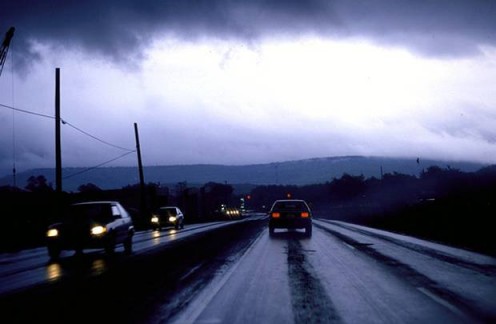
Hurricane Days ... Foreboding and Fear
Tuesday Morning, September 20, 2005
Around Tuesday morning, the first emails started to trickle into my inbox. I was teaching in the executive MBA program, part-time on Saturdays for the Cameron School of Business at the University of St. Thomas, a local, private university. I wasn't surprised when I received three emails from students in rapid succession. Each one read something like: "Dr. Middlebrook, are we going to have class on Saturday? A big storm is brewing in the Gulf, heading our way, and if it keeps coming this way, I am taking my family to safer ground. Please let me know what the University is planning to do with regard to our class.” At the time, I was teaching two, two-hour classes, back-to-back. Students from my management theory/marketing class, and others from my business ethics class, were concerned about whether or not the school would allow them to make up a missed class.
Remember now that a storm was coming—it wasn't yet upon us. So, I didn’t know what to tell those who called or emailed me. I worked at the University weekends only. I didn’t know what the University was planning to do, and I didn’t want to cause any unnecessary panic among my students. So, I called the Dean. After speaking with him, I was sure there had been no official word from the University. I crafted a response that I designed so that it would not add to panic unnecessarily but would still provide useful information for my students. I responded to inquiries saying something like, “I am sure the University officials will let us know something as soon as they know more. I will keep an eye on the school’s website (and you should too), and I’ll notify you all as soon as I know more.”
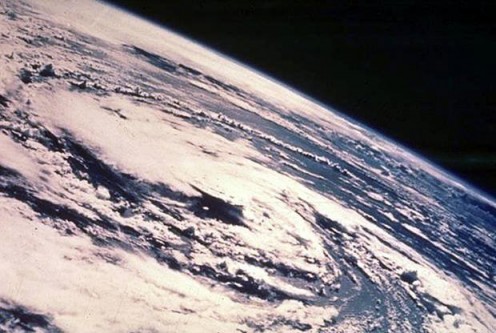
Wednesday Morning, September 21, 2005
By Wednesday morning the emails had changed from asking me what the school was planning to do, to informing me about what they (and their families) had decided to do. Now arriving in greater numbers, the emails were now reading something like: “Dr. Middlebrook, I wanted to let you know that I will not be in class on Saturday. My family and I have decided to leave just in case the worst happens. I will be in touch when we return.”
A few hours passed, and then the emails started streaming in at a faster pace. I checked the school’s web site once more and there was an official message from President Robert Ivy. I read it, logged back onto the Internet, and sent emails to everyone in both my classes. I even copied the official announcement into the email, so that my students wouldn’t have to go to the school’s website to read it unless they wanted to. The question about what to do about class was now answered. There would be no class until further notice. Everyone was now free, unencumbered about whether or not they might have to miss class, to make their decisions about the critical choice we were all facing: “Should I stay, or should I go?”
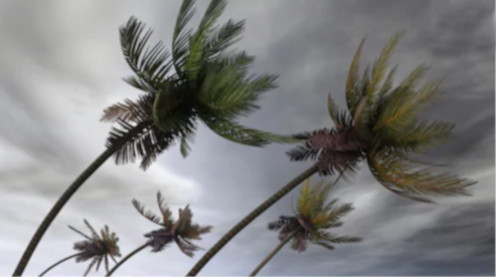
Ferocious weather was coming, we were warned, so I was facing the same decision as my students. At the time, I was in the process of buying my home, and in addition to teaching, I was working as an independent marketing and publishing consultant. Until mid-August of that year, 2005, I’d lived in Orange County, California completing a screenplay writing project that I'd been hired to work on, and I went there to work on it. During my stay in California, my car was totaled in an accident on the 405 South Freeway in Long Beach (an out-of-control Ford Explorer slammed into an Infinity FX 35, bounced off of it, then slammed into my Pontiac Grand Am.) Although injuries I received as a result of the accident had subsided a lot, I would have been hurt much more in that accident had I not heeded a warning I received from an unknown sender (read my article “Accident Angels,” for that story). Therefore, I was well aware of how the decisions we make on an hour-by-hour, minute-by-minute, and second-by-second basis can have a great impact on the quality of life we are left with. And even though leaving was going to be a great inconvenience for me since I, like everyone else in my sister's home and in the area where we lived, had things to do! But our common sense kept shouting at us, telling us that we had to do what we could do to ensure having a life. Securing life had to come first so that we could live to do those things we had to do.
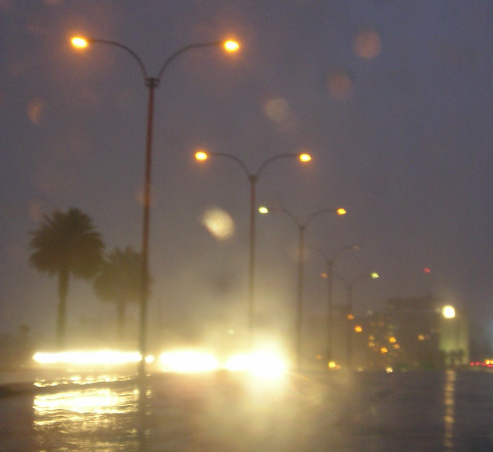
Thursday Morning, September 22, 2005
What we were faced with was one of the most ominously recurring themes of living in a coastal area—what to do when a hurricane is heading toward you. Houston’s mayor at the time, Bill White, had told residents to evacuate, but freeways were still at a standstill. We lived in a suburb of Houston, and even though Bill White was not technically our mayor, we still listened to him. And Bill White was telling us to “Go.”
Deciding whether to go or stay when a storm like Rita is approaching was, is, and always will be a recurring theme of life for people who live in these areas. I should know. I was born and raised in Mississippi in a rural area less than an hour from the Mississippi Gulf Coast. In fact, when I was a young child, I remember being afraid during the wrath of Hurricane Camille, a storm still talked about with quiet trepidation by many who remember it. The fear caused by anticipating and/or going through bad weather, including named and unnamed storms and tornadoes, for me, is simply another part of being alive. It is just one of those things people have to deal with when they live in Houston. Wednesday night had now morphed into Thursday morning, and the big storm was still headed toward us. Anxiety and frustration were mounting all around us in our neighborhood, and, mentally and physically, our fear had to be dealt with.
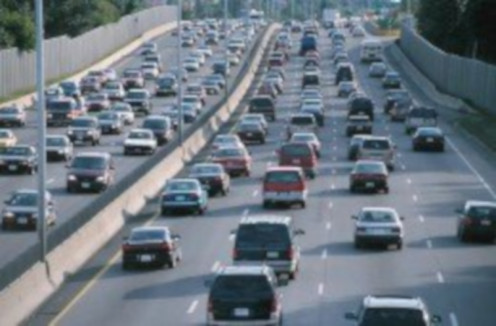
I did not want to leave. I wanted my life to stay on course, uninterrupted. I had just started my new part-time job at the university, and even though I was an “old pro” at being a college professor (I started teaching on the university level at age 27), I was returning to teaching after a long hiatus, and I wanted to go on with my life. I had also just started writing a stage play that eventually became part of a book I self-published. I had just begun to make progress on the book when it was a play, and the writing was going well. I didn’t want to interrupt “my flow” in order to hastily cram a few belongings into a suitcase and head out of town not knowing if I’d even be able to go anywhere. I did not want to interrupt my life, but, I also did not want to risk not having a life to continue. So, like my sister and her family, and like our neighbors, and like hundreds of thousands, or millions of other people in the area, I was in a quandary about what to do. And the decision I had to make had to be made soon. Should I stay, or should I go?
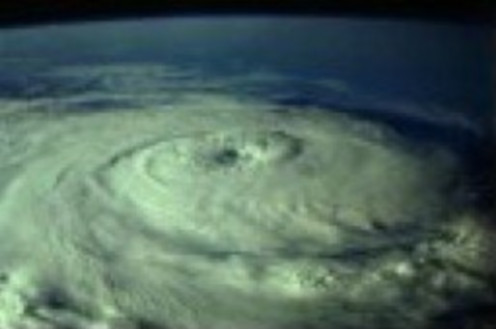
Facing the Big Hurricane Question: Do We Evacuate or Ride it Out?
Weather Storm or Traffic Nightmare?
Watching television, we were all eyewitnesses to the bottle-necked condition of traffic, and we could imagine the countless tales of woe that had to be taking place inside those cars that were on the freeways. People were sitting for hours on end in hot cars (to conserve gasoline) while inching at less than a snail’s pace, on what, on a normal day, would be free-flowing highways. But there was nothing normal about that day, and as we watched what was going on “out there,” my sister, her husband, and my nephew (their then 19-year-old son) all seemed to be leaning towards staying put. Especially after we became mesmerized watching continuous news updates about the mass exodus from Houston. We had all just about decided that even though we had an invitation for shelter from the approaching storm, from our younger sister who lived in Dallas, we still did not want to sit for hours on end in traffic on the way there. We did not like what we were watching on TV; long, long, long lines of traffic that did not end, yet were going nowhere, very slowly.
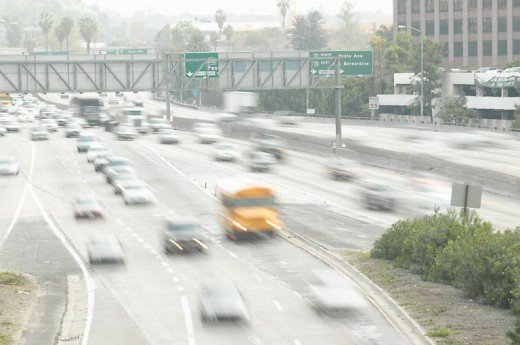
Should we stay, or should we go? News reports about Rita continued to be unfavorable for traffic. To our surprise, it seemed like most people in Houston and surrounding cities and suburbs were making the decision to flee. Surely, they’d been watching the same traffic stories we were watching on television, and still, they were deciding, first by the thousands—and then by the hundreds of thousands—going was better than staying.
We had a decision to make as a family. Would it be best to stay and run the risk of getting caught in what we were being told would be one of the worst storms to ever hit our area, or would it be smarter to run from Rita—to try to get ahead of the storm, still running the risk of getting caught in one of the worst hurricanes in the history of Houston? Not to mention possibly getting trapped in one of the worst traffic jams in the history of America. It was the worst kind of rock-and-hard-place scenario: A history-making hurricane was the rock, and hours and hours to be spent in agony, in a car, with record high temperatures and no air conditioning (to conserve gasoline during our trip), was the hard place. Hurricane or traffic fiasco. That was the overriding question, and every adult living in the Houston area had to come up with his or her own answer.
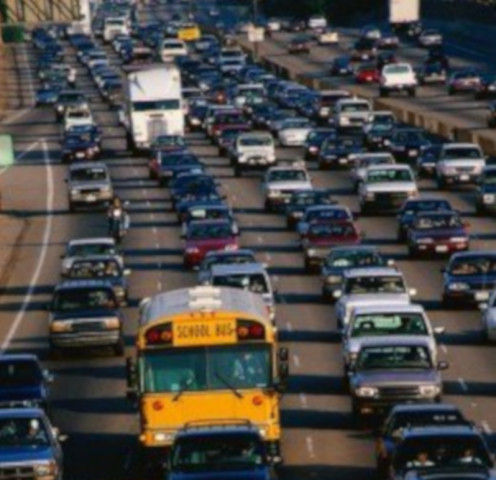
Better Safe Than Sorry?
We decided to start calling friends to see what they were going to do since we knew they were facing the same dilemma in their respective households. After everyone in the house spoke with several other people who had not yet left, we got back together to compare notes: Some friends were definitely leaving, others were definitely staying.
I was beginning to feel that it would be “better safe than sorry.” But what was “safe?” Leaving, or staying? Also, at the time, I did not have my own transportation, so I couldn’t actually leave on my own. I could choose to stay, but if I wanted to leave, I would have to leave with my family. So, we prayed about the decision we had to make, and without even discussing with each other our final preferences, everyone in my sister’s home came to the conclusion that it might be best to leave, for peace of mind, if nothing else. We hadn't actually decided to go, but we'd decided it might be best to go. Getting on the road meant we’d definitely have a chance to possibly get to Dallas before the storm, while staying in Houston meant we’d surely be in the area when the storm hit. So, would we stay, or would we go?
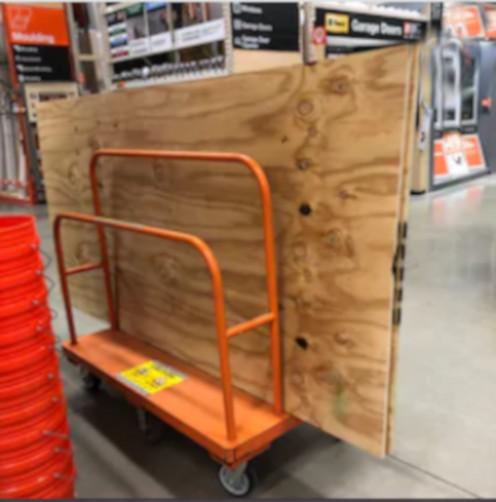
Should We Stay or Should We Go?
We got busy doing what millions of other homeowners were doing: Boarding up windows and moving patio furniture and plants inside. These were things we would need to do whether we left or stayed. We ran back and forth to nearby stores finding and purchasing what was left of items we needed to prepare my sister’s home as best we could. We talked things over in between rushing to and fro and here and there, but the agonizing decision was always a dark cloud hovering over our heads. Unbelievable traffic congestion was still the only show anyone in our area wanted to watch on TV, and it was interrupted only by news bulletins providing updates and more detail on what was promising to be one of the worst, if not the worst, of Category five hurricanes to ever hit the area.
Then we heard something in news reports we hadn't heard before. The news commentators, suddenly, were all talking about something called “contra-flow” lanes being opened up. Contra-flow was a new word to us, and it sounded good and hopeful, like something that might help us if we decided to leave. Even the news reporters sounded hopeful. They were saying major highways leading north and west, away from Houston, would be using contra-flow lanes: changing major highways to allow traffic to only head away from the city. It sounded like a wonderful and brilliant idea that would surely relieve the bottleneck traffic congestion now causing the trip to Dallas that normally took four to five hours (depending on where you started in the Houston area), to take 20 and 30 hours, or more.

The stress and pressure of indecision finally got to us. As a family, after a lot of praying, we finally made our decision: If the contra-flow lanes were opened as promised, we would leave for sure. Having twice as many lanes leading out of the city would help to relieve all the congestion and all the waiting in cars and trucks and vans and buses that we were seeing on TV news reports. Wouldn’t it? So, with hope derived from the idea of "contra-flow lanes," our decision was made. As soon as they opened the contra-flows, we would leave.
Around 2 p.m. on Thursday the news reports told us the contra-flow lanes were now open on I-45-North, and that meant that I-45 South was being used to flow traffic north too, from Houston to a spot just outside of Dallas. “Wonderful,” we all said. “Let’s go.” We packed ourselves and our things, and my sister’s family’s dog, Sparky. We would be driving the two cars my sister and her husband owned, a Honda CRV and a Buick Century. We were stressed out, tired, and most of all, scared, but we had made up our minds. It was official: We were running from Rita.

Outrunning the Hurricane: the Contra-flow Did Not Work!
Friday, September 23, 2005
In the wee hours of Friday morning, we were on the road, tired beyond words, and once again we were faced with a perplexing decision. Hurricane Rita was expected to make landfall sometime between Friday and Saturday, and the contra flow lanes were not working. After sitting in agonizingly hot vehicles on the road for nearly 14 hours, with a sick dog in one car (Sparky was ill), and after only making it to a spot outside of Conroe, Texas (a drive that, from the southwest end of Houston, usually takes no more than 75 minutes), it seemed all the hope we'd felt the day before had evaporated.
We had no way of knowing whether the contra-flow would begin to work or not, and it didn’t look as though we were going to get to Dallas, ever. Certainly not in time to be off the road when the storm hit. And now we had to question if it would even be possible for us to turn around (would the police allow it?), so that we could make it back home before the hurricane made landfall. Would it be better for us to stay where we were on the highway, to keep hoping and praying for the contra-flow to begin to work? Or would it make more sense for us to just turn around while we still had at least a little gas left, and attempt to return home?
Should we stay, or should we go?
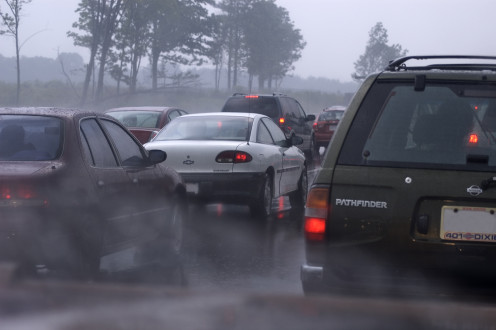
We had no way of knowing what was wrong, but we did know the contra-flow wasn’t solving, fast enough, all the traffic problems that came with having hundreds of thousands of people on the road at the same time. Looking at the unending lines of vehicles in front of and behind us, it seemed that staying where we might be our only option. How could we turn around even if we decided to go back home? There seemed to be nowhere to go except straight ahead, so we stayed in line a little longer.
Sitting in traffic talking to one another on our battery-charged and weakening cell phones, we had only minutes of gas left. We had to make our decision and we had to make it fast. On one hand, we would be glad to be heading home to shelter, food, water, and restrooms. But on the other hand, we knew we’d still be scared out of our wits waiting for a storm that was surely going to hit our area hard.
History was repeating itself, and once again, we had to make the same decision: Should we stay, or should we go?
News stations were blasting hurricane and traffic updates from car radios all around us. Windows were rolled down, and even though we were tuned to a news station, there was no need to try to hear our car radio. All my nephew or I needed to do was to stick our heads out of the windows (something we were doing anyway in order to breathe fresh air), and we heard other drivers' radios just fine. The reports were now warning us all that police officers were doing their best to keep at a minimum the congestion caused by people turning around and heading back into Houston. So now, to turn around and head back home, not only would we be risking another type of traffic problem, but we could also have a police problem. Traffic enforcement officers were trying to divert as many vehicles as possible to smaller local roads in order to reduce backups. Once again, our decision was not an easy one to make.
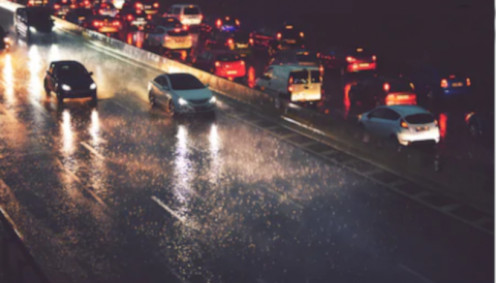
Saturday, September 24, 2005
Finally, we decided to take a chance. We found an exit, after several more hours on the road, and we somehow avoided the cops as we headed in the wrong direction down the contra-flow lanes. Back to the southwest side of Houston. Back home. Back to a place where we did not have to face that nagging question. We had made our final decision, and we were staying. In the wee hours of the morning, we made it home, safely. After mumbling prayers of thanks, we sat up a while, exhausted, but everyone seemed to be feeling much better than any of us felt just minutes earlier. With wind and rain raging outside, we decided it might be a good idea to try to get some sleep because we had no way of knowing what the next day might bring.
Hurricane Rita made landfall on Saturday. By the time it finally hit, it had been downgraded from a Category five to a Category three hurricane with 120 mile-per-hour winds. We were scared, but we were all glad we finally decided to stay; to ride out the storm at home. After all, we lived in an inland area, nowhere near a flood zone. And, although we knew there was still a chance disaster could strike, and even though we had no electricity and had gotten very little sleep, we still felt blessed to be indoors, out of the storm. Out of the traffic. Out of the contra-flow lanes. And no longer facing the maddening question. Finally? We were glad we decided, after attempting to go, we were all happily choosing to stay.
In the aftermath of the storm, we learned that most of the deaths that occurred while Rita was in town were associated with traffic in some way, and not with any actual damage caused by the storm.
© 2012 Sallie B Middlebrook PhD

